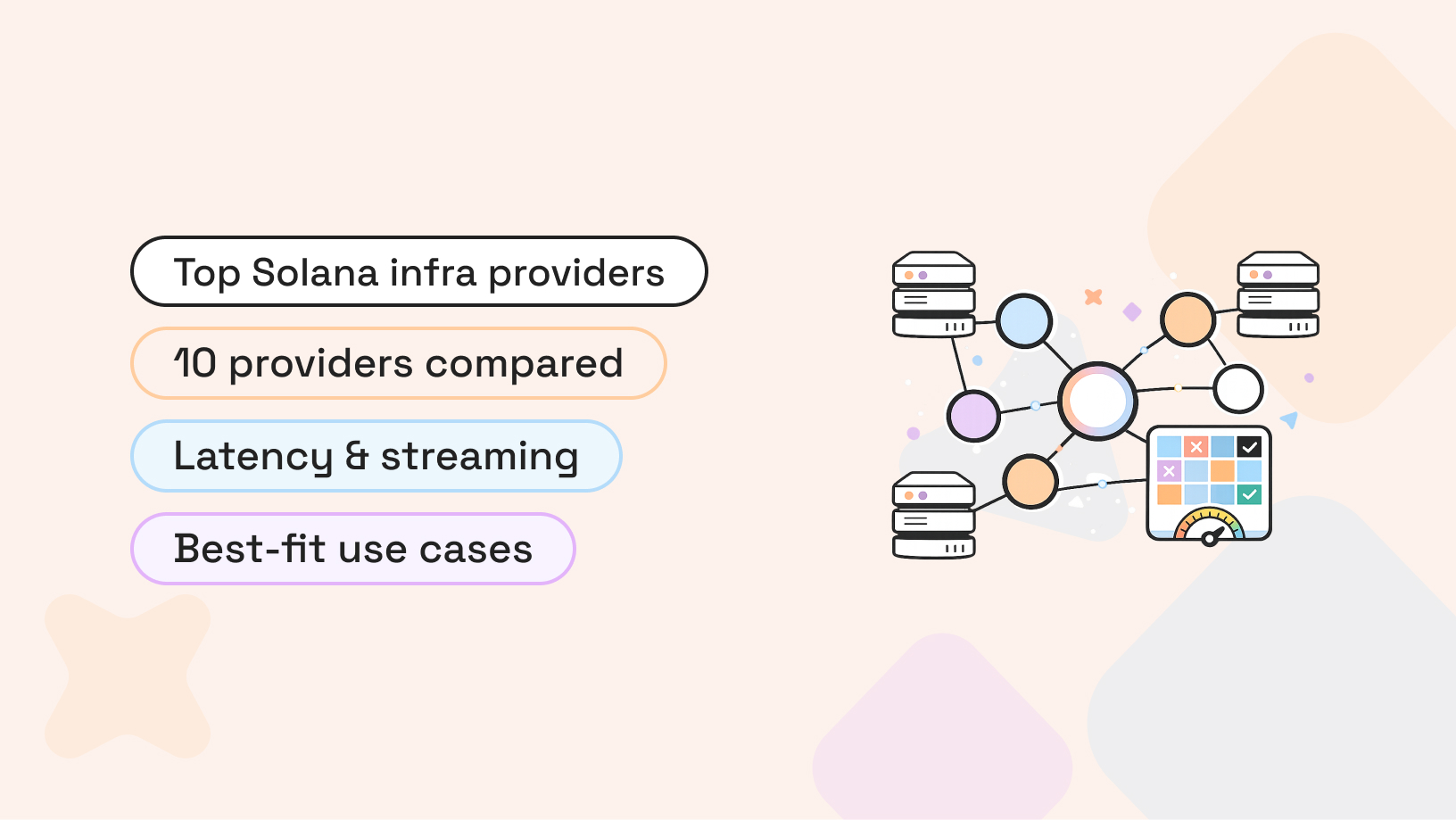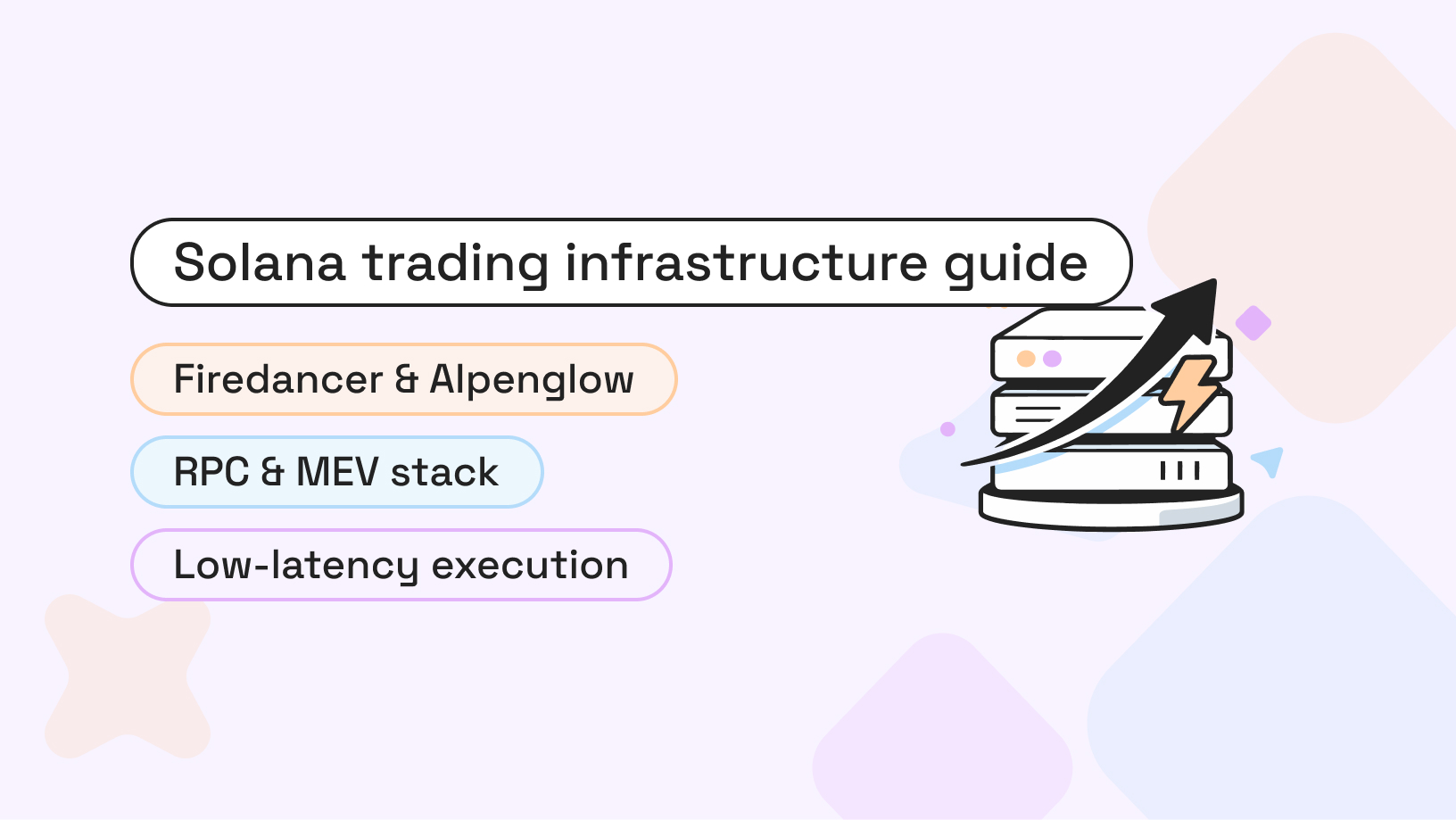
Find out how RPC Fast implemented a hybrid underlayer powered by OVHcloud for cost- and performance-wise Solana dedicated node cluster for Magneta Labs.
The context
Magneta Labs contacted RPC Fast for the Solana dedicated node cluster for blockchain analytics and trading data processing. RPC Fast offers comprehensive DevOps services for medium to large-scale projects by designing, building, and maintaining custom infrastructure solutions. Magneta Labs chose RPC Fast as a node provider because of their experience in blockchain and tailored infrastructure solutions.
In their turn, RPC Fast engineers have chosen OVHcloud to realize the cloud architecture that meets the requirements of the Solana dedicated node cluster.
The challenge
Implementing monitoring, alerting, and automation solutions for dedicated Solana nodes required an infrastructure upgrade. To bring those changes, RPC Fast engineers planned and implemented the following improvements:
Cloud Provision
A single Solana node utilizes around 80TB bandwidth per month (40TB in + 40TB out) and demands fast and stable uplinks. This, along with frequent significant memory requirements, shifts the focus from cloud to bare metal in the underlayer choice. Cloud computing has become extremely expensive due to the use of such resources.
RPC Fast experts wanted to be sure there would be no unexpected termination of all hosting services due to an unexpected ToS breach or any other blockchain-unfriendly reason. It may be really hard to get new hardware matching Solana node requirements in 1-2 days to prevent downtime due to unexpected disconnects.
OVHCloud provided RPC Fast with the best resources for an honest price, compared to the other hyperscalers’ offerings:
RAM Requirements
Solana nodes may demand significant amounts of RAM for indexes, depending on the RPC methods that were planned to support:
- getProgramAccounts, getTokenAccountsByOwner: 512GB RAM (in case only these 2 would be in use)
- getTokenAccountsByDelegate, getTokenLargestAccounts: 1.5TB RAM (2 of these or all 4 would be in use)
- A need to use more methods will define the custom parameters of a cluster.
Sometimes it’s also possible to decrease RAM usage by applying filters prior to index generation. Anyway, the hosting provider has to be able to match 2TB RAM requirements, when index filtering is not an option.
Kubernetes as Container Orchestration
There are underlayer requirements from K8s’ side to get all that K8s can do. The most known ones are network storage and load balancers. It’s also preferred to run K8s in the cloud to avoid hardware-specific issues and get new or resize existing nodes in seconds. So RPC Fast engineers needed an extra public cloud environment to implement it.
Apps and Services
To utilize the power of K8s in full, RPC Fast planned to maintain open-sourced Solana container images and Solana helm chart to suit our needs at best.
Challenges:
- Two nodes with a load balancer with no advanced monitoring and caching.
- The whole ecosystem lacks automation.
- Under conditions of Solana v1.18, RAM 1024 GB, the nodes still fail.
The solution

Through our partnership with OVHcloud, we can offer the most efficient servers to our clients costs/performance-wise, especially on Solana, proven OVHcloud’s track record on running Solana nodes. We are also able to sort out any technical issues quickly thanks to direct contact with the OVHcloud team.
The OVHcloud offered the public cloud and bare metal servers interconnect. It allows us to take the best of both worlds—the power of dedicated bare metal, plus the flexibility of cloud for k8s control plane, and low load essentials like monitoring and logging systems. RPC Fast engineers even managed to avoid the drawbacks of bare metal such as new node provision time setting up a bit more nodes alive for a typical workaround.
The results
With the unique features of OVHcloud service and selected servers, RPC Fast engineers deliver the top-tier Solana dedicated node cluster for Magneta Labs reaching the following goals:
- Hybrid cloud architecture based on OVHcloud features and services;
- Low-cost and top-performing Solana cluster with high availability and low latency;
- Monitoring, logging, and automation of the node lifecycle.



















.svg)
.svg)
.svg)

